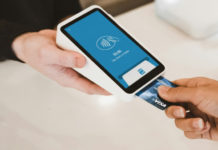It used to be that marketing strategies were built primarily around the idea of a theoretical consumer. Based on demographic trends, marketers would craft their messages to connect with the type of person they believed would be most likely to respond to them. This meant casting a wide net using what amounted to educated guesses. Today, however, advertising is no longer so impersonal.
Thanks to the Internet and rise of e-commerce, businesses of any size can reach out to their customers individually and even address them by name. With the extensive databases they amass through their websites, they can send emails tailored specifically to a single customer. When done correctly, this can spur him or her into making additional purchases. When handled improperly, though, he or she may be bombarded with spam email that does little but annoy.
Crafting an ideal personalized marketing strategy requires a lot of care and thorough planning. There are several crucial elements yours must possess if it is to have any hope of being effective.
Here are key elements you should feature in your efforts, and why they matter so much. If you can incorporate them into your campaign, you’ll stand a better chance of connecting with consumers.
Timing
People respond more favorably to targeted advertising messages if they come at the right time. For example, if someone purchased flowers for his or her wedding anniversary, you should follow up with a reminder 11 months later. There’s a good chance you’ll be able to convert that person into being a customer again because he or she will most likely be thinking about it at that moment.
Relevance
Knowing what your customers have bought from you in the past can be extremely useful when creating your next sales pitch to them. For instance, if you know someone has just purchased a new pair of shoes through your online store, it might be a good idea to come back to that person with deals on matching socks, belts or other accessories.
Reminders
It’s not enough to wait for people to want to purchase — you have to take an active role in putting them in the mindset. One effective means of doing that is by reminding shoppers of why they patronized your business in the first place. This can take the form of letting them know when their favorite brands are on sale or announcing a new product launch that may fit their interests.
Consistency
Today’s consumers desire a seamless experience across all aspects of their shopping. They want to be confident that a retailer knows who they are and what they want. This is where a retargeting email sent after an in-store purchase can be highly effective. When they get the impression that your online operations are fully integrated into your brick-and-mortar presence, they’ll put more trust in you.
Motivation
Offering customers incentives to return is another important element of personalized marketing. If you have a loyalty program, you can use an email to remind a shopper whenever he or she is close to the next reward.
Empathy
The antipathy toward robocalls and spam makes it clear that the human touch still is a crucial component of marketing. An emotional connection between you and your customer is perhaps the most challenging element to cultivate, but it’s vital nonetheless.
Without these critical elements, targeting consumers with emails may be a lost cause. To remind you of these effective strategies, keep the accompanying checklist handy and check your campaigns against it.




































